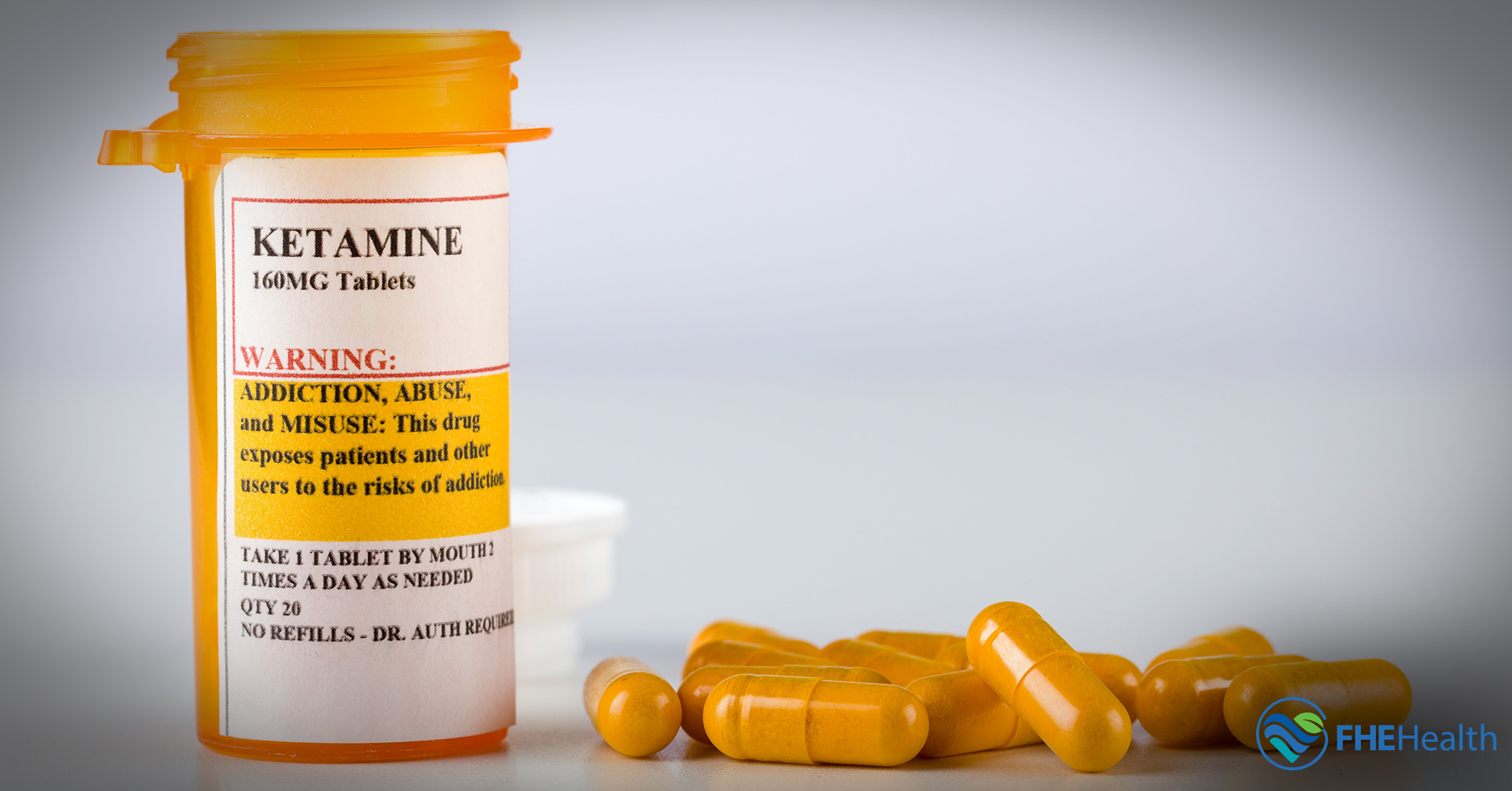
This article has been reviewed for accuracy by our peer review team which includes clinicians and medical professionals. Learn more about our peer review process.
Ketamine has earned a reputation for being a “miracle drug” for those with hard-to-treat, suicidal depression. That has spurred a growing number of providers nationwide, including FHE Health, to prescribe the drug.

Ketamine’s meteoric success as an antidepressant has raised questions about the drug’s safety, though, especially after the beloved actor Matthew Perry reportedly died from “acute effects of ketamine” in October 2023. Perry had been receiving ketamine therapy, but the medical examiner concluded that the ketamine in Perry’s system was not from his last infusion, given ketamine’s very short half-life.
Ketamine is a “dissociative anesthetic,” according to the Drug Enforcement Administration. As such, in a medically supervised context it has helped many people “detach” from their mental, emotional, and physical pain and feel calmer and more relaxed. Ketamine on the street is a different matter altogether.
For help understanding these safety differences and other medical concerns about ketamine, we turned to Medical Director Dr. Albert Castellon. Dr. Castellon oversees our psychiatric programs, including ketamine infusion therapy. You can catch his answers in the below Q&A.
Understanding the Boundaries on Medical Ketamine Use
Q: Can you talk about the safety differences between medical ketamine for depression and illicitly used ketamine?
A: Medically used ketamine is dosed strictly based on weight (at .5 mg per kilogram). When used for depression, the dose is very low and infused slowly over 25 minutes. The infusion also gives attending medical personnel time to stop treatment abruptly, in case of an adverse reaction such as hypertension or a rash.
Illicitly used ketamine can vary greatly in dosing, which can be largely unregulated. Illicit ketamine can also be mixed with other substances, including amphetamines, benzodiazepines and/or opioids. Therefore, one can never really know what they’re getting when using ketamine illicitly. Moreover, the illicit use of ketamine generally does not entail a safety protocol.
Q: What is the prescribing protocol for ketamine?
A: The prescribing protocols for ketamine in depression is 0.5 mg per kilogram of weight, infused over a period of 25 minutes. This protocol is generally used to treat severe depression, suicidal ideations, mood disorders, PTSD and even substance abuse.
Q: What safety precautions are in place to reduce the risks of overdose or other drug complications?
A: While using medical ketamine, there are safety precautions in place to ensure the safest administration and outcome. There is a nurse present throughout the entire treatment. The patient wears a pulse oximeter to monitor their pulse and oxygen saturation, and they have automatic vital sign readings every few minutes. These precautions, plus the slow infusion, decreases the risks of overdose or other complications. The patient is also observed for 30 to 60 minutes after treatment to ensure no side effects.
Q: Is it possible for someone with a history of substance addiction to get addicted to medically prescribed ketamine? If so, what preventive measures are taken to reduce this risk?
A: Ketamine, by its very nature, can be an addictive substance, especially when misused, overused, and frequently used. When using ketamine for depression, we tend to use the lowest effective dose and limit the number of treatments. We also offer a variety of supports alongside treatment, such as psychiatric support, medical support, nursing support, individual psychotherapy, and group therapy.
Proven Benefits of Ketamine as a Treatment
Q: What are the treatment benefits of ketamine? What makes it significantly more effective than other antidepressants (SSRI’s, etc.) at rapidly relieving depressive symptoms and suicidality?
A: There are many benefits in using ketamine for depression. The most noticeable is the rapid antidepressant effect, which can benefit those with suicidal ideation the most. Ketamine significantly reduces depression and anxiety. It also appears to promote the growth of new connections in the brain, resulting in better connectivity, and is known to switch certain connections on and off more rapidly. This may explain its rapid antidepressant effect.
Dangers of Self-Medicating with Ketamine
Q: What are the dangers of self-medicating with ketamine?
A: Although there are alternatives to medically assisted intravenous ketamine infusions, self-medicating with ketamine can have its drawbacks. There could be dangerous side effects which the patient may be unaware of, the patient may dose more by accident or for abuse, and the overall supervision is discounted.
The Importance of Seeking Help When You Need It
Ketamine is not for everyone, but it has helped many people find safe and quick-acting relief from often debilitating, life-threatening symptoms. To learn more about our ketamine infusion program and whether it may be right for you or a loved one, reach out anytime, day or night. We’re here to assist you, however we can.






